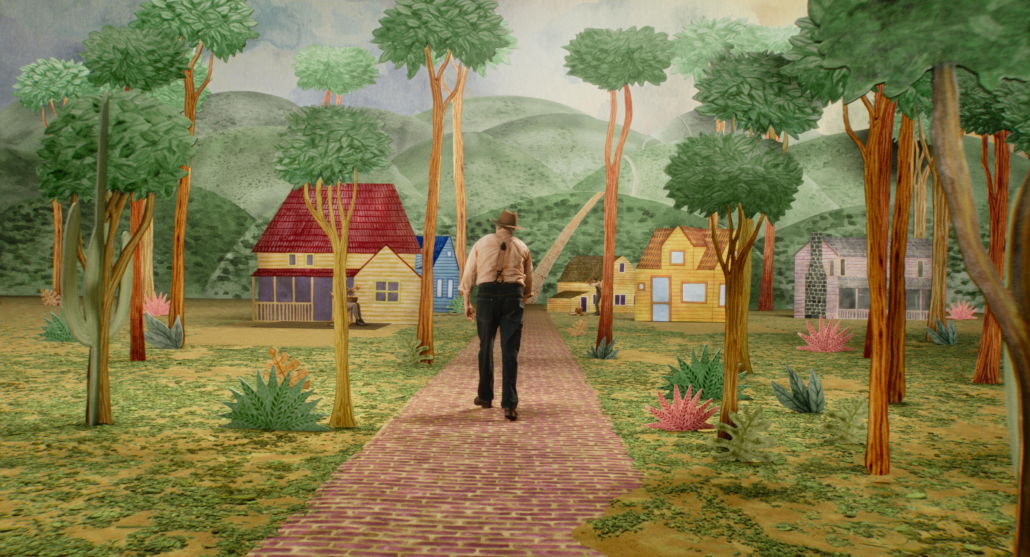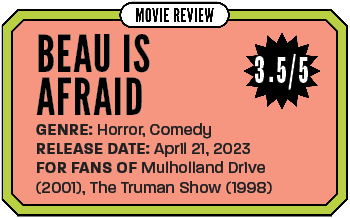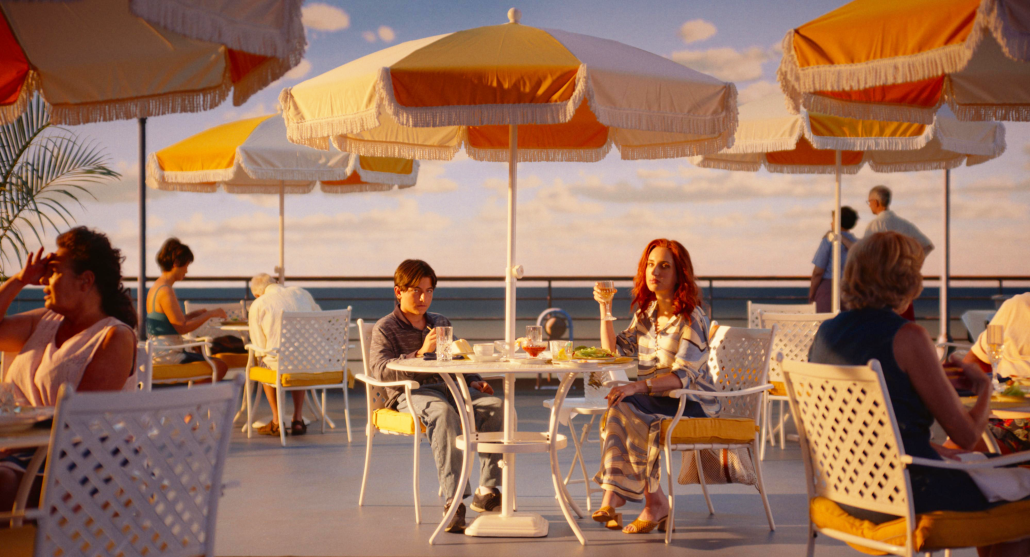Review: ‘Beau Is Afraid’: An absurd and frustrating spectacle


Ari Aster’s nightmarish Homeric epic “Beau Is Afraid” is whimsically and cruelly disorienting. Yet only one thing is explicitly clear: Beau is afraid. But of what? The poor guy can’t be blamed; he lives in a world where his worst nightmare is his reality, or a daydream, or somewhere between the two.
Aster, known for his contributions to contemporary arthouse horror in a close relationship with A24, has trademarked his disturbing and gory directorial style through stories about traumatic relationships and experiences. But unlike his other films “Hereditary” (2018) and “Midsommar” (2019), the fear factor of “Beau Is Afraid” is ironically tame, but it does not go without a venomous underbelly that quietly seeps into the cracks of the mind over the course of its three-hour runtime.
With “Beau Is Afraid,” Aster tries something new. The genre-bending dark comedy, akin to the surrealism of David Lynch synthesized with the archetypal drama of Greek epic, follows its titular hero on an Odysseyan journey greater than himself. On returning home to his mother for the first time in years, Beau Wassermann (Joaquin Phoenix) is faced with monsters within his mind and in the flesh along the way. But the lines between what actually exists and what doesn’t in Beau’s world are blurry.
Beau is a deeply sympathetic protagonist. The middle-aged man, living by himself and suffering from intense paranoia, simply cannot find peace in his life. Negligent everyday functions as simple as taking a bath or paying for a bottle of water have a pitiful aura of innocence. Phoenix commits to the character among the chaos of his surroundings in an engaging performance.
What powers Beau’s terror is the pitfalls of his own responsibility, encapsulated in the uneasy words of his mother: “I’m sure you’ll do the right thing, sweetheart.” Practically unable to ground himself in his own existence, Beau must rely on the guiding spirit of his loving mother to make it home. But what awaits him is far more challenging than happy trails.
Beau’s relationship with his widowed mother, Mona (Patti LuPone), is disconcerting from the beginning. At first a topic Beau unpacks in sessions with his therapist, the history of the mother-son relationship begins to unravel through a number of flashback sequences. A particular memory is set during a defining summer vacation, when a teenaged Beau has a short-lived affair with a eccentric young girl named Elaine (Parker Posey) whose image survives through a fading polaroid.

Beau’s allegiance to both women adds a layer of mystery to his past. It seems it has always been Beau and his mother against the world, but the claustrophobic space between the two is poisonous and radioactive. LuPone gives a wicked performance as Mona, a nightingale with the spirit of a Disney stepmother, whose appearance is built up by an equally razor sharp performance by Zoe Lister-Jones, who plays the younger version of the character.
Aster evolves his one of a kind craftsmanship and auteurism in “Beau Is Afraid” while recycling familiar Aster-isms. Along with eclectic production design and riveting cinematography, the film’s performances are what bring Aster’s imaginative vision to life by grounding it in the darkest of human fears.
With many vulgar surprises packed in, “Beau Is Afraid” is unapologetically absurd, and while Aster takes commendable risks, the film’s plot lacks the conciseness that an epic as large of a scale as “Beau” demands. Even with its three-hour runtime, the film remains engaging throughout with few dull moments — if any —, but time does not fly by quickly. Much of the plot’s construction feels random at times, sometimes working comically, otherwise evoking uncomfortable laughter.
There’s not much to say about “Beau Is Afraid” that doesn’t soil its shock value — it is best served cold. Aster ultimately leaves much about the plot unexplained, which prompts endless theorizing but also generates intense frustration. Though the film is deeply immersive, the characters become more distanced and isolated from us over the course of its runtime. The bleak darkness that lingers after “Beau Is Afraid” ends results from Aster luring us into the abyss of his own creation without throwing us a lifeline for safety.
Editor’s note: This story has been updated to remove spoilers.

